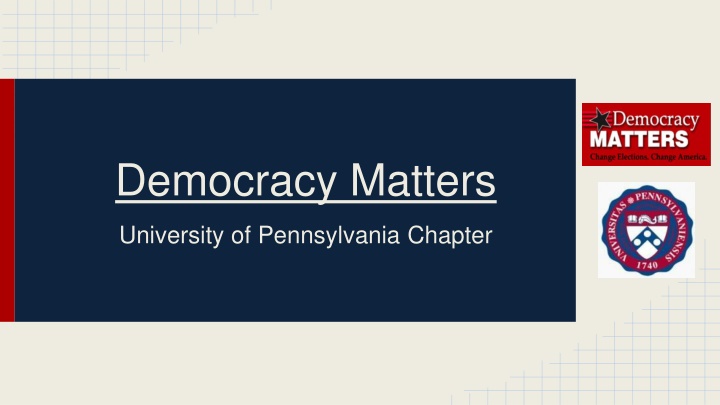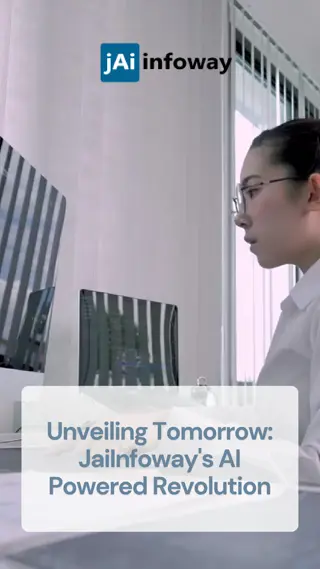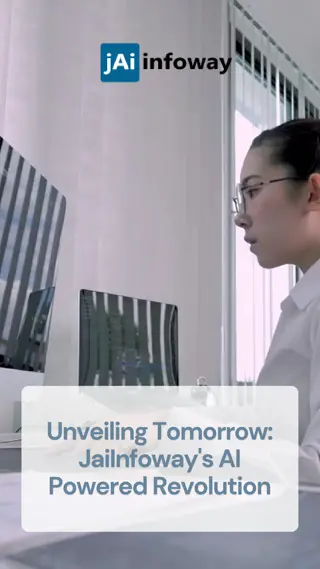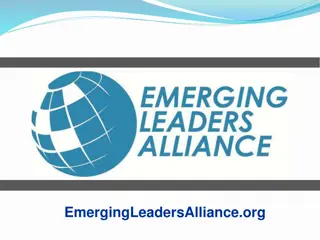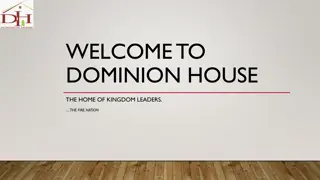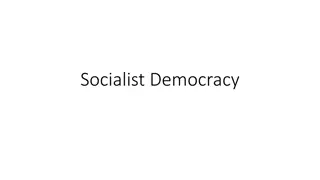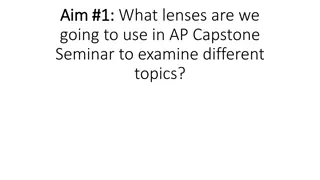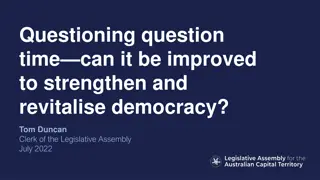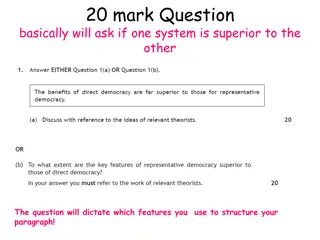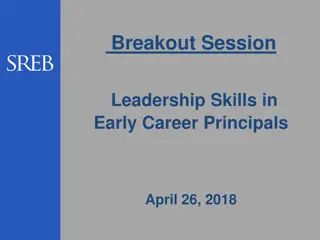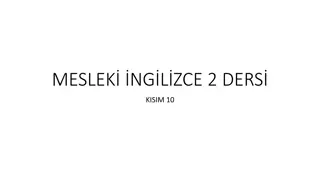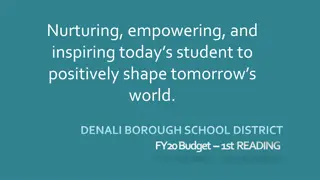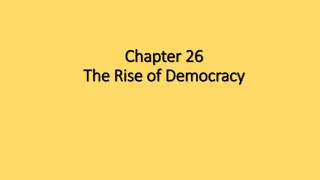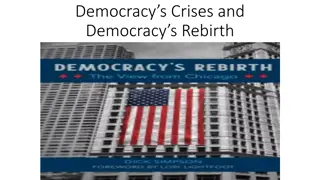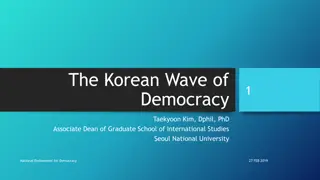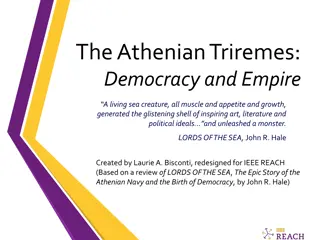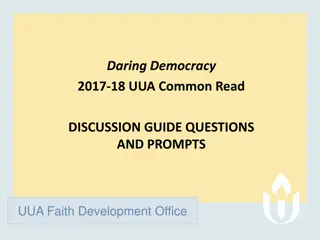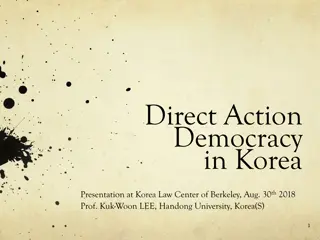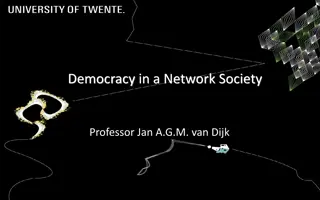Strengthening Democracy: Empowering Tomorrow's Leaders
Democracy Matters, a non-partisan student organization, aims to combat the influence of big private money in politics. By educating and training college students on grassroots organizing and advocating for pro-democracy reforms, they seek to re-engage students in politics, empower them with necessary skills, and highlight the connection between money and governance. The organization addresses the issue of decision-makers being shaped by wealthy donors, promoting equal opportunity for all to influence political decisions regardless of race, gender, or wealth.
Download Presentation

Please find below an Image/Link to download the presentation.
The content on the website is provided AS IS for your information and personal use only. It may not be sold, licensed, or shared on other websites without obtaining consent from the author.If you encounter any issues during the download, it is possible that the publisher has removed the file from their server.
You are allowed to download the files provided on this website for personal or commercial use, subject to the condition that they are used lawfully. All files are the property of their respective owners.
The content on the website is provided AS IS for your information and personal use only. It may not be sold, licensed, or shared on other websites without obtaining consent from the author.
E N D
Presentation Transcript
Democracy Matters University of Pennsylvania Chapter
Introductions Name Year and School What are you studying Where are you from? What song lyric best describes your life?
Ask Yourself... In society, Who rules? Who has access? For which people, groups, or interests is legislation made?
Our belief: Real democracy...has to allow everyone an equal opportunity to influence political decisions, regardless of your race, gender or sexual preference, and regardless of your wealth. Adonal Foyle, Founder
Who are we? Democracy Matters is a non-partisan campus-based national student organization that works to get big private money out of politics and people back in. Democracy Matters is about POWER, and who has the power to make decisions in America Our mission is to strengthen democracy by: o 1) training young people how to be effective grassroots organizers and advocates o 2) supporting public financing of election campaigns ( fair elections ) and other pro-democracy reforms (e.g. constitutional amendment campaign) Students organize actions and projects connecting pro-democracy reforms to issues of environment, civil rights, education, health care, foreign policy, and more.
Our Goals Educate college students about what it means to do issue-based politics Re-engage college students around politics Give college students skills in order to be political and do political organizing Give them a personal link to politics and then link it back to money and politics
The Problem Decision-makers are shaped by big donors and a small, elite group of campaign contributors. They want the power to create legislation. The common American is shut out of the process.
The Problem (Continued) 1. Only the wealthy or those with access to funds can run for election. The cost of election campaigns has been rising incredibly fast. The 2012 campaign election was predicted to cost around $6 billion. 2. Money in campaigns is proportional to victory. Winners outspent losers in 2012 Senate races by 4:1 (Center for Responsive Politics) 3. Contributions do not come from a large, diverse population. About 80% of all the money donated in election campaigns comes from a tiny fraction--less than to 1 percent--of the American people. These people are extremely wealthy and most have business interests before the legislature--not your typical citizen. 4. Campaigns spend too much time chasing money. As a result, they do not meet constituents and focus less on learning their issues.
Private money & other issues Big money in politics affects many large issues that many of us care about, including education, the environment, civil rights, women s rights, and poverty. How? Big money corporate donors and special interests who pay for election campaigns have priorities. Politicians are stuck paying them back rather than listening to the needs of ordinary citizens. Example: The environment. Contributions to Congressional campaigns in 2006 from pro-environmental organization totaled about $3 million. In contrast, representatives of the energy industry contributed $47 million. Who do you think politicians are going to listen to? Example: Student Debt. In a political system in which money equals power, students who are often shackled by debt and have little to no ability to make campaign contributions have limited power. The current political structure does not provide incentives for lawmakers to fix the student debt and college cost crisis. It s the Price We Pay
Citizens United, McCutcheon Citizens United: corporations should have a First Amendment right to spend limitless amounts to influence election outcomes McCutcheon: no limit on how much an individual can contribute to campaigns
Why money and politics? It s a gateway issue: We can t make progress on any of the issues we care about unless we get rid of special-interests Lawmakers will be beholden to issues we care about when we fund their elections Gives people the chance to run for office without needing to rely on big donors Shifts power structure to something truly democratic a responsive government
Americans are OUTRAGED! Nearly nine in ten Americans say that big companies (88%) have too much power in Washington D.C. Eight in ten respondents oppose the court s decision in Citizens United & McCutcheon. Republicans, Democrats and Independents who have heard about money in politics issues believed by an almost 4-to-1 margin that the ruling is having a negative effect. 83% of Americans (85% of Democrats, 81% of Republicans and 78% of Independents) think there should be limits on how much money corporations can give in elections. 90% of those with incomes over $100,000 support such limits. By a 5-1 margin, Americans agree that there would be less corruption if there were limits on how much could be given to super PACs. Only 14% disagree with this proposition. Here, 75% of Republicans and 78% of Democrats agree. 66% of small business owners view the Citizens United ruling as bad for small business ability to compete. Only 9% say it is good for small business.
1. Constitutional Amendment A constitutional amendment is the long-term solution to fully reverse the court s ruling, restore our rights and assert that democracy is for people, not corporations. Our elected officials cannot support the wellbeing of society when they fear that millions of dollars of corporate money will go to defeating them in the next election if they defy corporate interests. A constitutional amendment is ultimately the only way to finally overcome the profound challenges to our democracy posed by the Citizens United decision. So far, more than 2 million people have signed petitions in support of an amendment.
2. Fair Elections What it is: Provides an option for a viable candidate to use public funding for the costs of a campaign How it works: o Small-donor matching matching system -- for every $1 raised, candidates receive $6 from public funds o The Benefits: Candidates spend more time with constituents, learning their issues and gaining grassroots support. o Candidates can produce legislation that focuses on their constituents. o Successful Examples: NYC o
Our DM Chapter Educate and mobilize students to create a government OF, BY, and FOR the people (NOT big money)! Non-campaigns committees: o Social Media & Blogging o Investigative Journalism o Communications o Fundraising o Coalition Building o Research Campaigns: o Constitutional amendment campaigns o Fair elections/public funding campaign
Application Process Fill out the interest form by September 10, 2014 (next Wednesday) by 11:59 pm! o Interest Form We will meet with each person individually for 15 minutes the Saturday and Sunday after the form deadline (September 13 and 14) o We will use these meetings to gauge what committee best suits your interests, time commitment, and background We will inform you of your committee by the night of September 14 (next Sunday night). Stay tuned for our retreat on Saturday, September 20th o We will have a training session followed by brunch!
Whats Coming Up? US Senate vote on Democracy for All Amendment - Monday, September 8 o Social Media Campaign o Local Philadelphia Movement Democracy Matters National Constitutional Amendment Campaign - September 17 Guest Speaker Series - October o Democracy Matters Creator (& Penn Alum) o Democracy Matters Board Members o Professors
Social Media Democracy Matters: Like Democracy Matters on Facebook! Follow Democracy Matters on Twitter! o We ll be creating a Facebook group shortly! Open Secrets Like Open Secrets on Facebook! Democracy is for People - Public Citizen Like Democracy is for People on Facebook! Follow Democracy is for People on Twitter! Corporate Accountability International Like Corporate Accountability International on Facebook!
Thanks for listening! Thank you for taking the time to come to this interest meeting to listen to why we think you should join UPenn s Democracy Matters chapter! If you would like to be a part of our movement and this team, keep an eye out for our Interest Form & a copy of this Powerpoint in an upcoming email!
